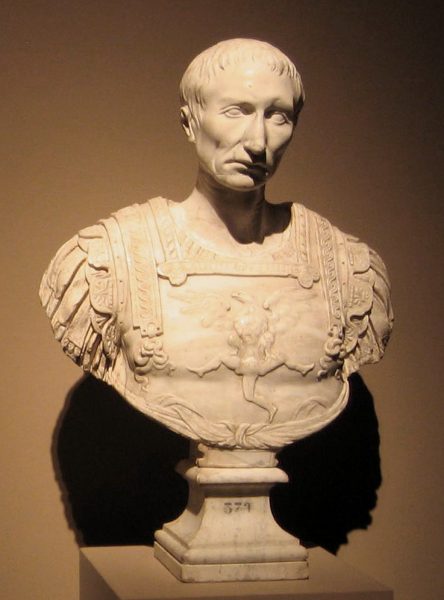 “Beware the Ides of March,” is a famous quote from William Shakespeare’s Julius Caesar. But what does it mean and how does it relate to Caesar?
“Beware the Ides of March,” is a famous quote from William Shakespeare’s Julius Caesar. But what does it mean and how does it relate to Caesar?
To find these answers, one must be familiar with the Roman calendar – which featured days different to our modern calendar. The first day of the month was known as the Kalends.The seventh day was known as the Nones. Lastly, the 15th of the month was known as the Ides, so the Ides of March translates to March 15.
March 15, 44 BC was the day Julius Caesar was assassinated by members of the Roman senate.
Caesar remains one of the most prominent figures in world history. With his battlefield victories and political stature, he became one of the most powerful men in Roman history.
After becoming a prominent commander during the Gallic War, Caesar gained enough power to cause a civil war in Rome – which later landed him the role of “dictator for life”, a position he gave to himself.
This power made the Roman senate worried. See, Rome became a republic after abolishing their monarchy – which is something they did not want to see put into place again. They were very worried that Caesar would end the republic and make himself the supreme ruler.
During the Lupercalia, a Roman festival, one of Caesar’s generals, Mark Antony, offered him the crown, which he refused. This upset the senate even more, which led to the assassination of their own dictator.
Led by notable figures such as Brutus and Cassius, a group of senators planned to kill Caesar upon his arrival at the Senate House, but he did not show up. His wife, Calpurnia, had a nightmare where Caesar died, so he decided to stay home. After some time, one of the assassins convinced Caesar to go to the senate.
During what he believed was a typical meeting, Caesar was surrounded by his assassins and stabbed 23 times – with the large amount of blood loss leading to his death.

The public was outraged at Caesar’s death. The dictator was a popular figure among the common people of Rome, so they felt betrayed by the actions of the assassins.
After Caesar’s death, his adopted son, who later became known as Octavian, was named heir to Caesar’s power and wealth – allowing him and Antony to wage war against Brutus and Cassius. The pair of assassins were defeated at the battle of Philippi.
Later on, Octavian and Antony would have a falling out, leading to a second civil war and the suicide of Antony and Cleopatra – the former lover of Caeser, wife of Antony, and last pharoah of Eygpt.
With this final defeat, Octavian gained complete control of Rome – leading to him establishing himself as the first Roman emperor.
In a way, the Roman senate created the problem they wanted to avoid, and it all started with the Ides of March.

